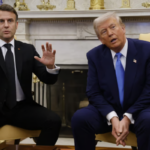Canada has announced a 25 percent tariff on vehicles imported from the United States. This move comes in response to newly imposed US tariffs under President Donald Trump’s administration. The Canadian government has stated that this tariff will target vehicles that do not meet the requirements set out in the US-Mexico-Canada Agreement (CUSMA).
Prime Minister Mark Carney confirmed that the tariff would affect about 67,000 vehicles each year, with a focus on US-made cars and light trucks that contain less than 75 percent North American parts. These vehicles make up roughly 10 percent of all vehicles shipped from the US to Canada.
Read also: Mobile money transactions reach $1.68tn in 2024 – GSMA report
Impact and value of the tariff
The new tariff, valued at $5.7 billion (Can$8 billion), is expected to have significant financial repercussions. It will primarily affect vehicles that fall outside the terms of the CUSMA agreement, a trade deal meant to improve relations between the three North American nations. The tariff will be applied to vehicles in the coming days, intensifying the ongoing trade dispute between the two countries.
Read also: PalmPay launches new debit card in Nigeria in partnership with Verve, targets 35m users
Canada’s response to US trade measures
While Canada largely avoided the immediate impacts of the global tariffs recently imposed by the US, it continues to face existing levies on various products, including steel and aluminium. These tariffs are part of the broader tensions between Canada and the US, as trade relations have become increasingly strained under the current US administration.
Mark Carney has criticised the escalating trade war, stating that the actions taken by Trump could have severe consequences for the global economy. “Trump’s actions will rupture the global economy,” Carney said, pointing to the shifting landscape of global trade. He also noted that the US’s long-standing position as a leader in global trade appears to be coming to an end.
Read also: Nigeria, Angola and Ghana back Africa Energy Bank with $249m in capital contributions
Canada’s previous retaliatory measures
Canada has already responded to US trade policies by imposing retaliatory tariffs on $60 billion worth of US goods, including consumer products and steel. These measures have added to the already existing tension between the two nations, with both sides continuing to trade barbs over trade policies and economic relations.
Read also: iSON Xperiences appoints Ricardo Langwieder as Chief Sales Officer
Future negotiations
Despite the ongoing trade conflict, Prime Minister Carney and President Trump have agreed to negotiate the future of bilateral trade following Canada’s upcoming elections on April 28. This marks a potential shift in the trade dynamics between the two countries, with hopes of reaching a resolution after the political uncertainty in Canada is resolved.
The escalating trade war between the US and Canada has intensified economic pressures on both sides, with significant consequences for businesses and consumers. While the focus now shifts to upcoming negotiations, the future of trade relations between the two countries remains uncertain.










